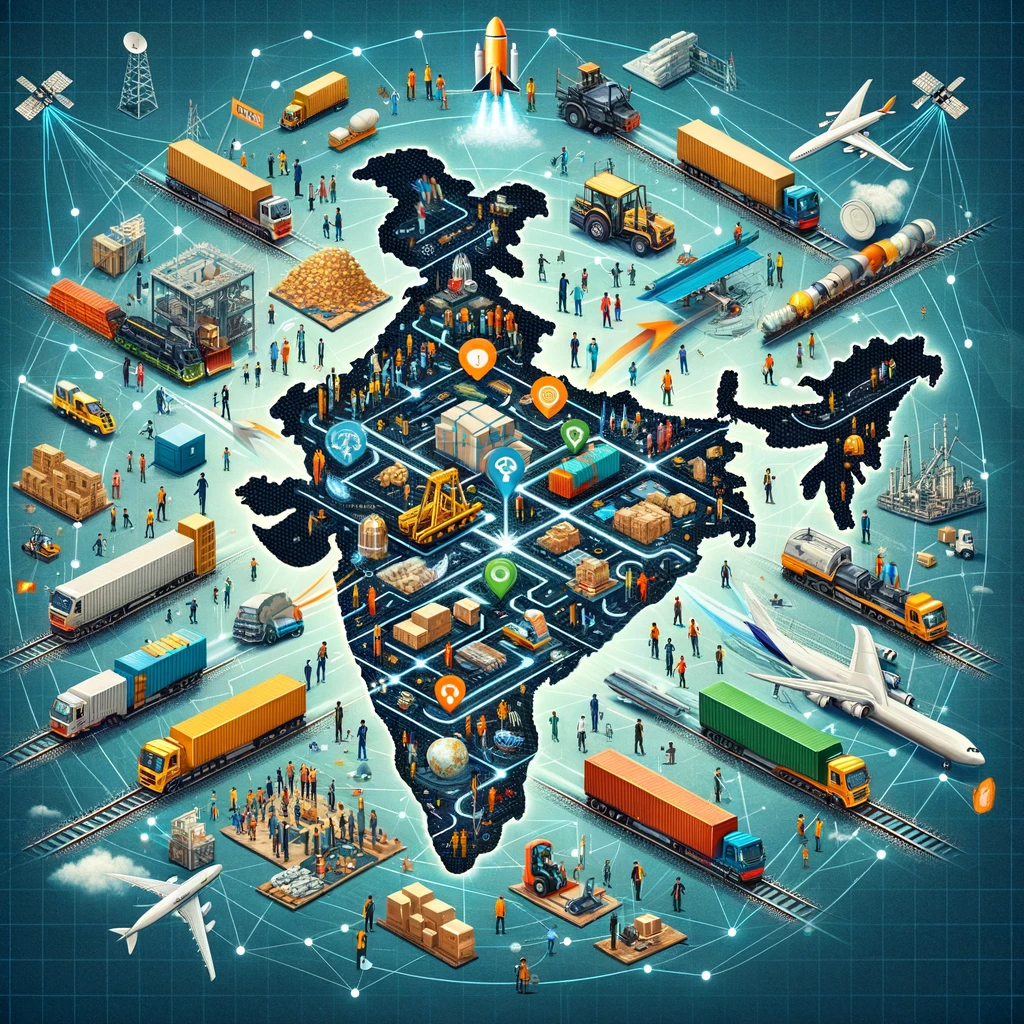India’s vast and diverse landscape presents unique challenges and opportunities in the realm of logistic coordination. From bustling cities to remote rural areas, ensuring the smooth and efficient movement of goods is a critical component of trade and commerce. In this article, we explore the five most asked questions about logistic coordination in India, shedding light on best practices, challenges, and solutions.
What is Logistic Coordination and Why is it Crucial in India?
Logistic coordination involves the strategic planning and execution of transporting goods from one location to another, ensuring timely and cost-effective delivery.
- Defining Logistic Coordination: It encompasses various activities including transportation, warehousing, inventory management, order processing, and customer service.
- Significance in India: Given India’s geographical diversity and infrastructural challenges, effective logistic coordination is essential to overcome potential bottlenecks and ensure seamless trade.
- Impact on Costs: Efficient logistic coordination can significantly reduce transportation and storage costs, directly impacting a business’s bottom line.
- Influence on Customer Satisfaction: Timely and reliable delivery is key to customer satisfaction, making logistic coordination a critical component of customer service.
- Contribution to Economic Growth: By enhancing the efficiency of trade and commerce, effective logistic coordination contributes to the overall economic growth and competitiveness of India.
Understanding the role and importance of logistic coordination is the first step towards optimizing supply chains and enhancing trade efficiency.
What are the Key Components of Logistic Coordination in India?
Effective logistic coordination in India involves a multitude of components, each playing a crucial role in the seamless movement of goods.
- Transportation: This includes road, rail, air, and sea transport, each with its own set of challenges and advantages in the Indian context.
- Warehousing and Storage: Adequate and strategically located storage facilities are crucial to ensure goods are kept safe and can be efficiently distributed.
- Inventory Management: Keeping track of stock levels, ensuring availability, and minimizing holding costs are key aspects of logistic coordination.
- Order Processing: Efficient systems to process orders, manage documentation, and coordinate deliveries are essential.
- Customer Service: Providing timely updates, addressing queries, and resolving issues promptly are integral to successful logistic coordination.
Each of these components requires careful planning and execution to ensure efficient and effective logistic coordination.
What are the Major Challenges in Logistic Coordination in India?
The complexity of India’s logistic sector presents several challenges that can impact the efficiency of supply chains.
- Infrastructure Bottlenecks: Inadequate transportation and warehousing infrastructure can lead to delays and increased costs.
- Regulatory Hurdles: Navigating the various state and central regulations can be a complex and time-consuming process.
- Lack of Technology Adoption: The slow adoption of modern logistic technologies hampers efficiency and visibility in supply chains.
- Fragmented Industry: The presence of numerous small players and lack of standardization can lead to inconsistencies and inefficiencies.
- Environmental Concerns: With increasing awareness of the environmental impact of logistic activities, finding sustainable solutions is becoming a pressing challenge.
Addressing these challenges requires a combination of infrastructural development, regulatory reforms, and technological innovation.
How Can Technology Enhance Logistic Coordination in India?
The integration of technology in logistic coordination can drive efficiency, reduce costs, and enhance visibility across supply chains.
- Automation: Automating routine tasks can reduce errors, save time, and increase overall efficiency.
- Real-Time Tracking: GPS and RFID technologies enable real-time tracking of goods, providing transparency and improving accountability.
- Data Analytics: Analyzing data from various logistic processes can provide insights into inefficiencies and areas for improvement.
- E-Logistics: The use of digital platforms for order processing, inventory management, and customer interaction can streamline operations.
- Sustainable Solutions: Technology can also play a role in optimizing routes and improving vehicle load utilization, contributing to more sustainable logistic practices.
Embracing technological solutions is key to modernizing India’s logistic sector and ensuring it is equipped to meet the demands of a growing economy.
What Best Practices Should Businesses Follow for Effective Logistic Coordination in India?
Adopting best practices in logistic coordination can lead to improved efficiency, reduced costs, and enhanced customer satisfaction.
- Strategic Planning: Developing a comprehensive logistic strategy that aligns with business objectives is crucial.
- Building Relationships: Establishing strong relationships with logistic partners ensures reliability and can lead to more favorable terms.
- Investing in Technology: Allocating resources towards modernizing logistic operations can yield long-term benefits.
- Focus on Customer Service: Ensuring prompt and reliable delivery, along with effective communication, enhances customer satisfaction.
- Continuous Improvement: Regularly assessing and optimizing logistic processes ensures they remain efficient and adaptable to changing circumstances.
By following these best practices, businesses can navigate the complexities of logistic coordination in India, ensuring their goods are transported efficiently and effectively.
Navigating the intricate landscape of logistic coordination in India requires a deep understanding of the local challenges, a strategic approach, and a willingness to embrace technological solutions. By adhering to best practices and continuously seeking ways to optimize processes, businesses can overcome the hurdles and leverage logistic coordination as a competitive advantage. Whether it’s ensuring timely delivery, reducing transportation costs, or enhancing customer satisfaction, effective logistic coordination is a key pillar of successful trade and commerce in India.






